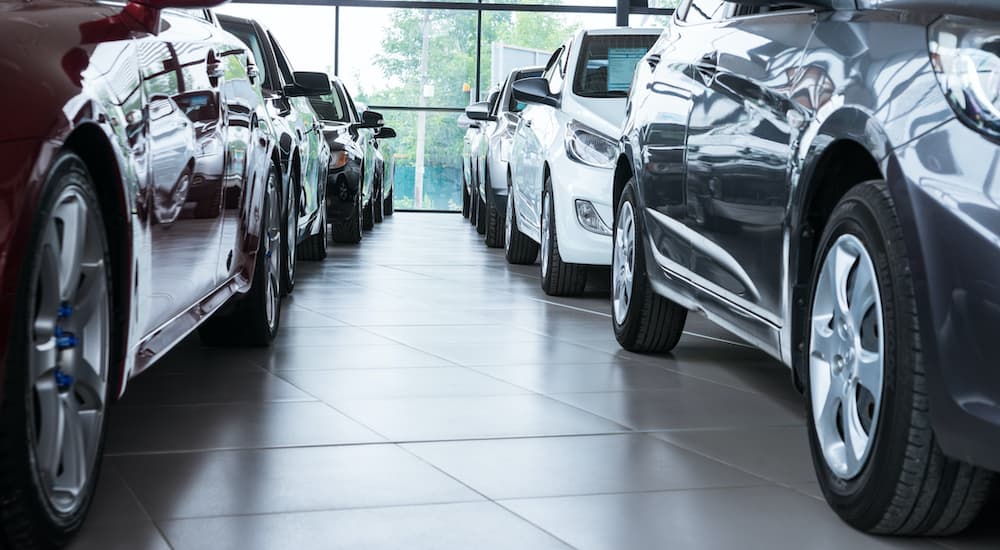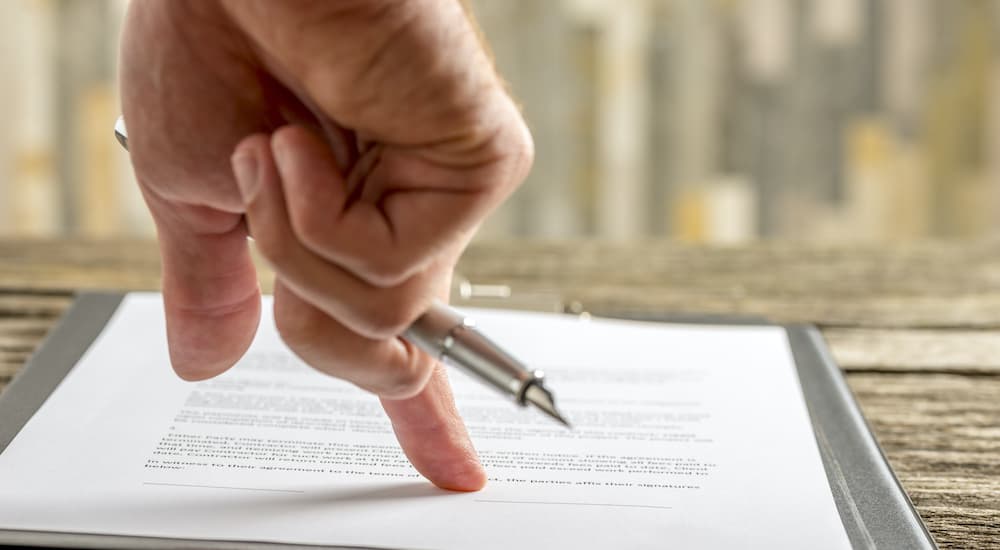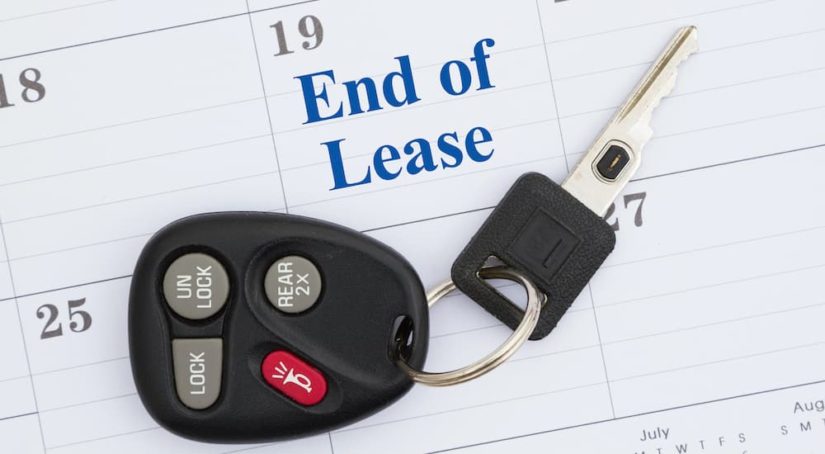There are a lot of reasons to consider leasing instead of buying or leasing with the option to buy. But there are some things worth considering before you lease your first vehicle, especially when it comes to leasing your first Toyota. The one thing you don’t want to do is go out there and lease only to get blindsided by something you didn’t expect, especially with a Toyota lease return. That’s why we feel it’s important to cover some of the aspects of what you need to consider before leasing. This includes how to return a lease, what to consider when the lease return is done, and what your options are after you return a lease. So let’s get right into what you need to know about returning a lease BEFORE you lease your first vehicle.
Can I Return a Leased Toyota to Any Toyota Dealership?
No. You can’t return a leased Toyota to just any Toyota dealership. If you leased the vehicle at a specific dealership, then you have to return the vehicle to that dealership. This is to prevent any confusion or data-keeping mishaps. If you attempt to return a vehicle to a dealership where you didn’t get the vehicle from, it does nothing but create confusion. You can sometimes return the lease to a different Toyota dealership – for example, if you have moved to an entirely new location – but you will need to ensure they are a participating dealer before you try. Turning it into the dealer you got it from is the easiest option.
When it comes to service, maintenance, and having questions answered regarding the vehicle you leased, it’s also easiest to have it done at the dealership where you leased the vehicle from. It’s important to also keep in mind the distance of the dealership; try to stick to something close by, especially if you have to make several trips back and forth to the dealership.
Do I Have to Schedule the Return of a Leased Vehicle?
Yes. Make sure you schedule to return a leased vehicle 30 days prior to your return date. If you leased a Toyota from a local dealer, then you can simply call to schedule an appointment and drive the vehicle back to the dealer you originally leased the vehicle from. The most important thing is to make sure that you get the vehicle back to the dealer before the end of your lease date. Otherwise, you could incur additional charges.
Alternatively, if you would feel safer informing the dealership about the end-of-lease date and would prefer to schedule to have it in early or by the date, it certainly helps. This makes it easier if you plan on leasing a different vehicle, buying the vehicle you leased, or simply opting for something else. Scheduling also means that the dealership will be ready with all of the end of lease paperwork, inspections, and other things that will need to happen, saving you time.

Should I Have the Vehicle Inspected Before Returning It?
Yes. It’s important to make sure you go through the official checklist provided by Toyota on what you should look for before you return the vehicle. This includes examining the seats for any damage to the material, checking for any missing components, and making sure there is no exterior damage or interior malfunctions. Do this early so that you have time to make any necessary repairs.
An inspection of the vehicle will be conducted by the dealership after you return the vehicle. It’s important that you inspect the vehicle yourself before having it inspected by the dealership to make sure you fix, repair, or replace anything before returning the lease. If you don’t, you mind find yourself racking up a lot of fees.
Am I Responsible for Repairing a Lease Before Returning It?
Any damage that occurs to the vehicle under your possession will need to be repaired before you return the vehicle at the end of the lease. Alternatively, if you return a leased vehicle without repairing any damages incurred while in your possession, then the dealer may contact you about additional charges to cover the cost of repairs. This is why it’s important to have an inspection done before the end of the lease agreement, so you can address any issues and have the vehicle repaired so when it’s time to return the vehicle, you don’t have to pay extra.
Do I Have to Pay Anything to Return a Lease?
This depends. When you return a leased vehicle, you will need to make sure you have the odometer statement, owner’s manual, keys, and all of the original equipment that came with the vehicle when you first leased it. If any of those things are missing, you may have to pay for the missing accessories/material/etc. Also, if you have gone over your mileage limit, you will have to pay extra, and if you still owe any payments, you will be expected to make them.
Additionally, any costs to repair or replace items associated with the vehicle will come out of the security deposit. If the costs exceed the security deposit, then an invoice may be sent out. If, however, the costs are negligible and do not exceed the security deposit, then the remaining balance will be returned to you. If you keep the leased vehicle under the designated mileage within the lease agreement, and no damage was done to the vehicle or no repairs required, then you shouldn’t have to pay much of anything.

Do I Have to Buy the Vehicle If the Lease Terms Aren’t Met?
No. You don’t have to buy a vehicle you lease, nor do you have to buy a returned lease even if the lease terms aren’t fully adhered to. You will, however, have to pay any outstanding fees if you go over the mileage allowance or for any wear and tear on the vehicle that wasn’t addressed before returning the vehicle. However, even if you exceed some of the terms or are late, you aren’t locked into buying the vehicle. You can choose to completely walk away from the leased vehicle once you return it.
Even still, there are some ways to help with addressing potential overage charges, such as buying the Excess Wear & Use Protection from Toyota’s financial services department. This will ensure that up to $5,000 worth of repairs or wear is covered. If you don’t plan on putting much wear and tear on the vehicle, and you are confident that you can get the vehicle back in proper order, then you don’t need to worry about the protection plan.
Can I Lease Another Vehicle After Returning a Lease?
Yes. This is actually a very popular decision that many people exercise when leasing vehicles. Simply ask about leasing something new when you return your current lease. You can even set up or schedule to lease another vehicle before your current lease agreement ends. You also aren’t required to lease the same kind of vehicle that you had before. You can choose a new model or simply not lease anything new at all.
Can I Buy a Different Vehicle After Returning a Lease?
Yes. You can buy a completely different vehicle after returning your lease. Once all the contracts and payments are settled, you can opt to buy a new or used vehicle. You can even lease a different vehicle, as mentioned above, or buy the vehicle you were leasing. It all depends on what suits your car-shopping needs.
Leasing a car can be an exciting option, especially when you don’t want to have to commit to one vehicle long-term. Just make sure that you know what to expect before you sign the lease contract.



